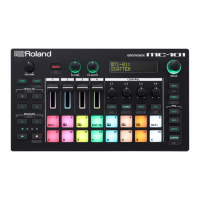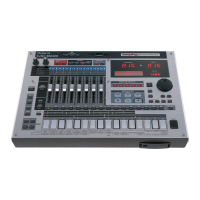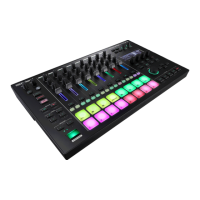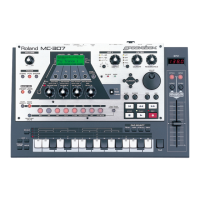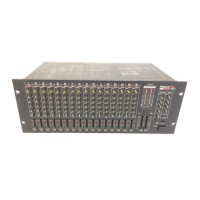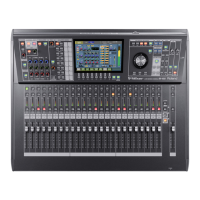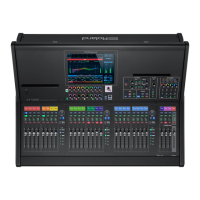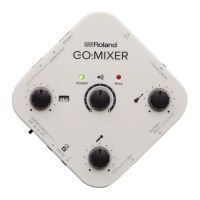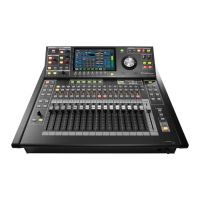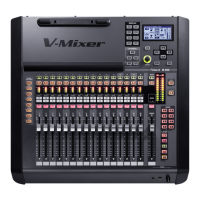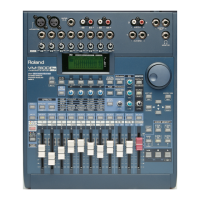©2003 Roland Corporation U.S. MC-909 Getting Started Guide Page 13
®ÂØÒňΠMC-909 Getting Started Guide
What’s velocity? MIDI measures how hard you hit a VELOCITY PAD or key, and calls that
measurement “velocity.” Typically, the greater the velocity, the louder and brighter the
resulting note. Velocity can also cause other changes to a patch’s sound, depending on how
it’s programmed to respond to varying velocities as you play.
You don’t need to do anything about this now, but—just so you know—you can adjust the way
the sequence’s parts are mixed by pressing F3 (Mixer), and you can adjust the sequence’s speed,
or “tempo,” by pressing F6 (BPM/Click). We’ll discuss these options later. For now, if you can’t resist
pressing one of these buttons, go ahead. Just press F6 (Close) to return to the TR-Rec Standby
screen when you’re done snooping around.
Starting TR-Recording
Here we go.
1. Press PLAY—a few things happen:
• The MC-909’s metronome starts beeping as the empty sequence plays over and over.
• The TR-Rec screen appears and the first of the sequence’s four measures appears in a grid.
Now line
If the box above Note
Number isn't selected,
press F3 (Note Number).
The TOP POSITION
readout tells you the
measure you're
looking at.
• A vertical line called the “Now line” moves from left to right across the screen as Measure 1
plays, disappearing off to the right during the sequence’s other three measures. The Now
line shows you your current position in the sequence.
In TR-Rec mode, each VELOCITY PAD acts as an on/off switch for one of the sequence’s
beats. By default, each measure in the sequence is divided up into 16 steps, or 16th notes.
Each pad represents one of these 16th notes. The black bars above the pads show how
each set of four pads belongs to one of the measure’s four beats.
Beat 1 Beat 2 Beat 3 Beat 4
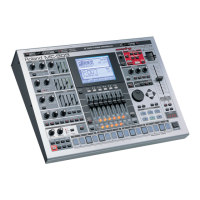
